Your cart is currently empty!
Month: July 2024
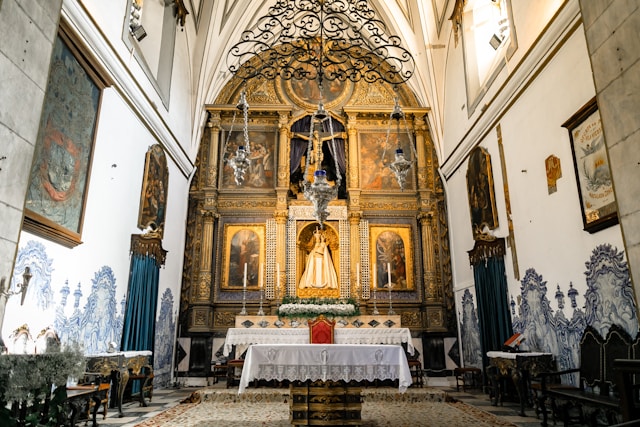
Discover the Spiritual Haven: Find Black Churches Near You
Connecting with the African-American Christian Community
The African-American Church has been an integral part of the cultural and spiritual fabric of the United States for centuries. From the days of slavery to the present, black churches have served as beacons of hope, centers of community, and catalysts for social change. Today, black churches continue to play a vital role in the lives of millions of people across the country.
Finding a black church near you can be a rewarding experience. It’s an opportunity to connect with a community that shares your heritage and values, and to grow spiritually in a welcoming and supportive environment.
How to Find Black Churches Near You
There are several ways to find black churches near you:
* Online directories: Websites such as BlackChurch.com and ACAToday.org list hundreds of black churches nationwide. You can search by location, denomination, and other criteria.
* Local newspapers and magazines: Many black-owned newspapers and magazines publish a directory of local churches. Check your local ethnic media outlets for more information.
* Community centers and organizations: Contact your local community center or African-American organizations such as the NAACP or Urban League. They may have information about local churches.
* Word of mouth: Ask friends, family, or colleagues if they know of any black churches in your area.Benefits of Attending a Black Church
There are many benefits to attending a black church, including:
* Sense of community: Black churches are often close-knit communities where members support each other through thick and thin.
* Spiritual growth: Black churches offer a variety of worship services, Bible study groups, and other programs to help you grow spiritually.
* Historical and cultural significance: Black churches have played a major role in American history and culture. Attending a black church can help you connect with this rich heritage.
* Social justice and activism: Many black churches are actively involved in social justice issues and community outreach.Tips for Choosing a Black Church
When choosing a black church, consider the following factors:
* Denomination: Black churches come from a variety of denominations, including Baptist, Methodist, Pentecostal, and more. Choose a denomination that aligns with your beliefs.
* Location: Consider the church’s location and whether it’s convenient for you to attend.
* Size: Some churches are large with hundreds of members, while others are small and intimate. Choose a church size that feels comfortable for you.
* Leadership: The pastor is an important figure in any church. Consider the pastor’s preaching style, leadership abilities, and involvement in the community.
* Congregation: Visit the church on a Sunday morning to get a feel for the congregation. Are they welcoming and friendly? Do they reflect the values you’re looking for?Directory of Black Churches Near You
To help you find a black church near you, we’ve compiled a directory of churches in major cities across the United States.
City Church Address Phone Website Atlanta New Birth Missionary Baptist Church 6400 Woodrow Rd, Lithonia, GA (770) 808-9000 newbirth.org Baltimore Ebenezer Baptist Church 4001 Monument St, Baltimore, MD (410) 889-4491 ebenezerbcbaltimore.org Chicago Trinity United Church of Christ 400 W 95th St, Chicago, IL (773) 493-1500 trinityuccchicago.org Dallas St. Luke “Community” United Methodist Church 5933 E R L Thornton Fwy, Dallas, TX (214) 371-8800 stlukeumc.com Detroit Second Ebenezer Baptist Church 14601 Dequindre St, Detroit, MI (313) 332-2421 secondebenezer.org We hope this guide helps you find a black church near you that meets your needs.
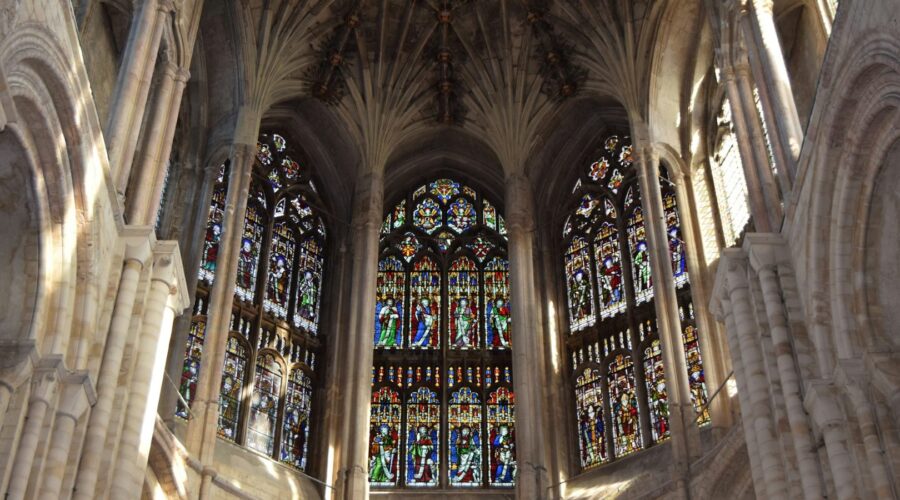
St. Paul’s Cathedral: A Timeless Architectural Masterpiece
Introduction
Nestled in the heart of London, St. Paul’s Cathedral stands as a testament to architectural brilliance and spiritual significance. This iconic landmark has witnessed centuries of history and remains a beloved destination for both locals and visitors alike.
History
Ancient Origins
The site of St. Paul’s Cathedral has been a place of worship since at least the 7th century. It is believed that a church was first built here in 604 AD by King Ethelbert of Kent.
Saxon and Norman Cathedrals
Over the centuries, the original church underwent several renovations and expansions. In the 10th century, a Saxon cathedral was built, followed by a Norman cathedral in the 11th century.
The Great Fire of London
In 1666, the Great Fire of London destroyed most of the city, including the Norman cathedral. The reconstruction of the cathedral was entrusted to the renowned architect Sir Christopher Wren.
Architecture
Sir Christopher Wren’s Masterpiece
Wren’s design for St. Paul’s Cathedral is widely considered one of his greatest works. The cathedral is a masterpiece of Baroque architecture, characterized by its grand scale, harmonious proportions, and elaborate ornamentation.
The Dome
The most striking feature of the cathedral is its towering dome. Measuring 365 feet (111 meters) in height, the dome is a marvel of engineering and artistry. It is constructed using a double shell, with the inner dome resting on a series of pendentives.
The Nave and Choir
The interior of the cathedral is equally impressive. The nave and choir are divided by a massive screen, known as the rood screen. The nave is lined with rows of Corinthian columns, supporting a coffered ceiling decorated with intricate carvings.
The Altar and Presbytery
The altar and presbytery are located at the eastern end of the cathedral. The altar is a focal point of worship, adorned with precious metals and gemstones. The presbytery is the area reserved for the clergy during services.
Religious Significance
Cathedral of the Church of England
St. Paul’s Cathedral is the seat of the Bishop of London and the mother church of the Diocese of London. It is one of the most important cathedrals in the Church of England.
Royal Weddings and Funerals
The cathedral has hosted numerous royal weddings and funerals over the centuries. Notable examples include the weddings of Prince Charles and Lady Diana Spencer in 1981, and Prince William and Kate Middleton in 2011.
Symbol of Remembrance
St. Paul’s Cathedral has become a symbol of remembrance and national unity. It played a prominent role in the aftermath of both World Wars, hosting memorial services and commemorations.
Visitor Information
Admission and Opening Hours
- Admission tickets are required to visit the cathedral’s interior and climb the dome.
- The cathedral is open daily, except during services.
Tours and Events
Guided tours are available, providing insights into the cathedral’s history, architecture, and religious significance.
The cathedral also hosts a variety of events throughout the year, including concerts, exhibitions, and services.
Accessibility
St. Paul’s Cathedral is wheelchair accessible, with ramps and lifts available.
Conclusion
St. Paul’s Cathedral is a magnificent architectural marvel and a symbol of religious, cultural, and national significance. Its timeless beauty and enduring legacy continue to inspire and awe visitors from around the world.
Further Reading
St. Paul’s Cathedral Official Website
Visit London: St. Paul’s Cathedral
Rick Warren: The Purpose-Driven Pastor
Introduction
Rick Warren is an American evangelical Christian pastor, author, and theologian. He is the founding pastor of Saddleback Church in Lake Forest, California, one of the largest and most influential churches in the United States. Warren is also the author of the best-selling book “The Purpose Driven Life,” which has sold more than 30 million copies worldwide.
Early Life and Education
Rick Warren was born in San Jose, California, on January 28, 1954. He grew up in a Christian home and was baptized at the age of nine. Warren attended California Baptist University and Southwestern Baptist Theological Seminary. He earned a Master of Divinity degree from Southwestern Baptist Theological Seminary in 1979.
Ministry
In 1980, Rick Warren and his wife, Kay, started Saddleback Church in a rented movie theater in Lake Forest, California. The church quickly grew, and within a few years, it had moved to a larger facility. In 1995, Saddleback Church moved to its current location in a custom-built megachurch complex. Today, Saddleback Church has over 100,000 members and is one of the largest churches in the United States.
Warren is a popular author and speaker. His book “The Purpose Driven Life” has been translated into more than 100 languages and has sold more than 30 million copies worldwide. Warren has also written several other books, including “The Purpose Driven Church” and “The Daniel Plan.” He is a frequent speaker at conferences and events around the world.
Theology
Rick Warren is a conservative evangelical Christian. He believes in the inerrancy of the Bible and the deity of Christ. Warren is also a strong advocate for social justice and has spoken out on issues such as poverty, AIDS, and human trafficking.
Awards and Recognition
Rick Warren has received numerous awards and recognition for his work. In 2005, he was named one of the 100 most influential people in the world by Time magazine. Warren has also received the Presidential Medal of Freedom, the highest civilian honor in the United States.
Controversy
Rick Warren has been involved in several controversies over the years. In 2008, he was criticized for inviting President Barack Obama to speak at Saddleback Church. Warren has also been criticized for his support of Proposition 8, a California ballot measure that defined marriage as between one man and one woman. In 2013, Warren apologized for his support of Proposition 8, saying that he had “evolved” on the issue.
Conclusion
Rick Warren is one of the most influential Christian leaders in the United States. He is the founding pastor of Saddleback Church, one of the largest and most influential churches in the United States. Warren is also the author of the best-selling book “The Purpose Driven Life,” which has sold more than 30 million copies worldwide. Warren is a conservative evangelical Christian who believes in the inerrancy of the Bible and the deity of Christ. He is also a strong advocate for social justice and has spoken out on issues such as poverty, AIDS, and human trafficking.
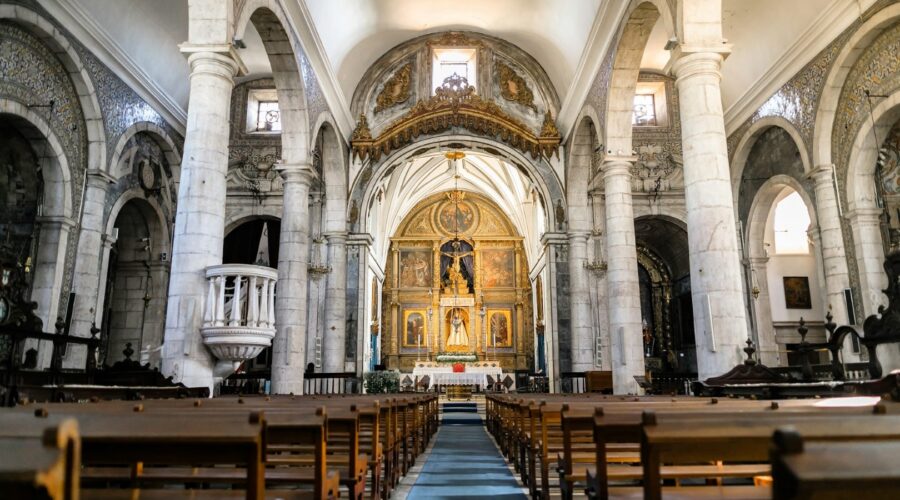
Discover the Liturgy of the Hours: A Comprehensive Guide
“`html
The Liturgy of the Hours is an ancient and beautiful Christian tradition that invites us to pray with the Church throughout the day. By joining our voices to those of our brothers and sisters in Christ, we lift up our hearts and minds to God, sanctifying every moment and drawing closer to Him.
History and Origin
The Liturgy of the Hours has its roots in the Jewish tradition of praying at fixed times throughout the day, as described in the Psalms (e.g., Psalm 55:17). In the early centuries of Christianity, Christians adopted this practice and gradually developed a more formalized structure.
By the 6th century, a set of monastic hours had emerged, including Matins (morning prayer), Lauds (morning praise), Terce (mid-morning prayer), Sext (midday prayer), None (afternoon prayer), Vespers (evening prayer), and Compline (night prayer). This structure was later adopted by the broader Church.
Purpose and Significance
The Liturgy of the Hours is a way for us to:
- Sanctify every hour of the day by offering our prayers to God.
- Connect with the Church’s universal prayer, uniting our voices with believers around the world.
- Meditate on Scripture, the Psalms, and the teachings of the Church, deepening our understanding of our faith.
- Prepare our hearts for Mass and other liturgical celebrations.
Structure and Components
The Liturgy of the Hours consists of seven main prayer periods, or “hours”:
Hour Time Content Matins Midnight or early morning Usually includes readings from Scripture, the Fathers of the Church, and the Rule of St. Benedict (for those in monastic communities). Lauds Dawn Composed of psalms, hymns, and readings relevant to the liturgical season. Terce 9:00 AM A brief prayer break with a short psalm and reading. Sext Noon Similar to Terce, but with a longer psalm and more extensive readings. None 3:00 PM A short prayer time with a specific psalm for each day of the week. Vespers Evening Similar to Lauds, featuring psalms, hymns, and a reading from Scripture. Compline Bedtime A short prayer before retiring, including an examination of conscience and prayer for protection. Tips for Praying the Liturgy of the Hours
Here are some tips for praying the Liturgy of the Hours:
- Find a regular time and place: Consistency will help you establish a rhythm of prayer.
- Use a breviary or online resources: These provide the texts and instructions for each hour.
- Be open to the Holy Spirit: Allow the words and readings to speak to your heart.
- Pray with others: Whether in a monastic community or simply with a friend, praying together strengthens our bonds.
- Don’t be afraid to adapt: While the official structure is recommended, you can adjust the prayers to fit your lifestyle.
Conclusion
The Liturgy of the Hours is a treasure of the Church, offering us a profound way to connect with God throughout the day. By joining our voices to the universal prayer of the Church, we not only deepen our own spirituality but also contribute to the unity and well-being of the entire Christian community. Embracing the Liturgy of the Hours is an invitation to a life of constant prayer and communion with God.
“`
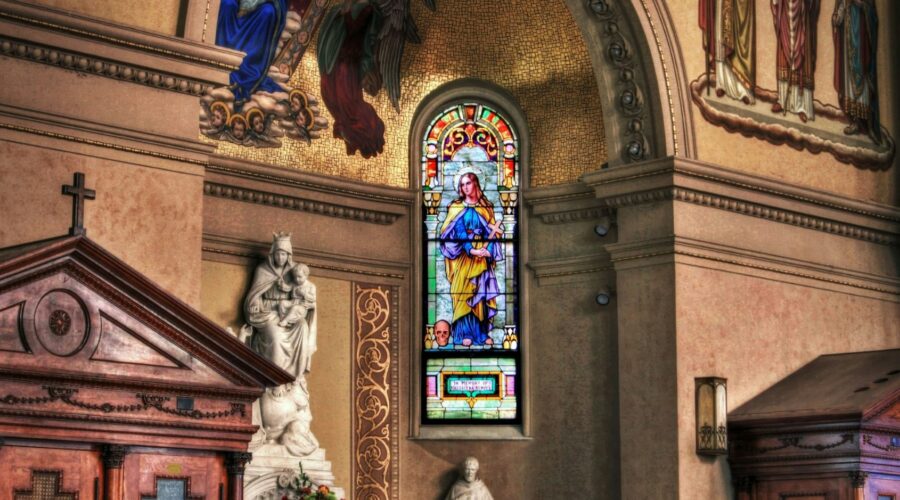
Discover the Profound Significance of Baptism: A Comprehensive Guide
Understanding Baptism
Baptism is a profound religious ceremony that has been practiced for centuries across diverse faiths. It symbolizes a spiritual transformation, purification, and entry into a religious community. Here’s an in-depth look at the various aspects of baptism:
Modes of Baptism
- Immersion: In this method, the individual is completely submerged in water, representing a symbolic drowning of the old self and rising to a new life in Christ.
- Sprinkling: Water is sprinkled over the head of the person, indicating a cleansing from sin and acceptance of God’s grace.
- Pouring: Water is gently poured over the person’s head, symbolizing a spiritual washing and renewal.
Baptism in Christianity
In Christianity, baptism is a sacrament that typically takes place during infancy or later in life. It signifies:
Infant Baptism
- Dedication of the child to God
- Reception of God’s grace and protection
- Welcoming into the Christian community
Adult Baptism
- A personal profession of faith in Jesus Christ
- A commitment to follow God’s teachings
- An outward sign of inward spiritual renewal
Baptism in Other Faiths
Baptism is also practiced in other faiths, with varying meanings and rituals:
Judaism
- Immersion in a mikveh (ritual bath) for purification
- Symbolizes a renewing covenant with God
Islam
- Known as “Ghusal” or “Wudu”
- Involves washing the entire body with water
- Ritual purification before prayer or other religious observances
Buddhism
- Sprinkling or immersion in water
- Represents purification and the washing away of sins
- May be repeated throughout one’s life
Significance of Baptism
Unveiling the Symbolic Meanings
- Water as a Symbol of Purification: Water cleanses and renews, removing sin and impurity.
- Death and Resurrection: Immersion or pouring symbolizes dying to the old life and rising to a new one.
- Covenant with God: Baptism marks a commitment to God and a relationship of faith.
- Baptism into the Body of Christ: It symbolizes inclusion into the Christian community.
- Fruit of the Holy Spirit: Baptism invites the Holy Spirit into one’s life, bringing spiritual gifts and guidance.
Practical Considerations
Planning a Baptism Ceremony
- Choose a Baptism Venue: Church, chapel, outdoor site, or home.
- Select a Godparent/Sponsor: A Christian role model who supports the baptized individual.
- Prepare Baptismal Vows and Readings: Create meaningful words to express faith and commitment.
- Plan the Baptism Liturgy: Music, prayers, and readings that enhance the ceremony.
Tips for a Meaningful Baptism
- Reflection and Preparation: Engage in prayer and contemplation before the baptism.
- Personal Testimony: Share a brief testimony of faith if desired.
- Meaningful Gifts: Give symbolic gifts to commemorate the occasion, such as a cross or a Bible.
- Celebration and Fellowship: Gather loved ones to celebrate the baptism and share in the joy.
Conclusion
Baptism is a profound and meaningful religious ceremony that holds deep significance for individuals and communities. Whether practiced in Christianity, Judaism, Islam, or Buddhism, baptism symbolizes purification, renewal, and a covenant with the divine. By understanding the modes, meanings, and practical considerations of baptism, you can experience its transformative power and walk in newfound faith and purpose.

Discover the Cornerstone of Your Faith: Cornerstone Church
About Cornerstone Church
Cornerstone Church is a vibrant and welcoming community of believers who are committed to following the teachings of Jesus Christ. With a strong emphasis on discipleship and evangelism, the church is dedicated to equipping its members to live out their faith in every aspect of their lives.
Established in [Year], Cornerstone Church has grown steadily over the years, establishing a strong presence in the local community. The church offers a variety of worship services, Bible studies, and outreach programs to meet the spiritual needs of its members and the surrounding area.
Mission and Vision
Mission Statement:
To glorify God by making disciples of Jesus Christ who live out their faith in every aspect of their lives.
Vision Statement:
To be a thriving community of believers who are known for their love, unity, and passion for sharing the gospel.
Core Values
- Biblical Authority: We believe that the Bible is the inspired and authoritative Word of God.
- Discipleship: We are committed to helping believers grow in their faith and become mature disciples of Christ.
- Evangelism: We believe in the Great Commission and are passionate about sharing the gospel with our community and beyond.
- Prayer: We believe in the power of prayer and seek God’s guidance and intervention in all aspects of our church life.
- Worship: We believe that worship is an essential part of our relationship with God and strive to create a worship experience that is both meaningful and engaging.
Programs and Ministries
Cornerstone Church offers a wide range of programs and ministries to cater to the diverse needs of its members and the community. These include:
- Worship Services: Weekly worship services featuring music, preaching, and prayer.
- Bible Studies: In-depth Bible studies for different age groups and interests.
- Youth Ministry: Programs and activities for youth to grow in their faith and connect with peers.
- Children’s Ministry: Age-appropriate programs for children to learn about God and Jesus.
- Outreach Programs: Mission trips, community service projects, and other initiatives to serve the community.
Leadership
Cornerstone Church is led by a team of dedicated and experienced pastors and leaders. The senior pastor, [Pastor’s Name], has a passion for preaching the Word of God and leading the church in its mission. The leadership team is committed to providing spiritual guidance, support, and encouragement to the congregation.
Location and Contact Information
Cornerstone Church is located at [Address]. For more information, please visit the church website at [Website Address] or call [Phone Number].
Why Attend Cornerstone Church?
- Biblical Teaching: You will hear the Bible taught clearly and accurately.
- Welcoming Community: You will be welcomed with open arms and made to feel at home.
- Opportunities to Grow: You will find opportunities to grow in your faith through discipleship, Bible studies, and outreach programs.
- Outreach Focus: You will be part of a church that is passionate about making a difference in the community and the world.
- God’s Presence: You will experience the presence of God through worship, prayer, and fellowship.
Upcoming Events
To stay updated on upcoming events and activities at Cornerstone Church, please visit the church website or follow the church on social media. Here are a few upcoming events to mark in your calendar:
Date Event Time [Date] [Event Name] [Time] [Date] [Event Name] [Time] [Date] [Event Name] [Time] Conclusion
Cornerstone Church is a vibrant and welcoming community of believers who are passionate about following Jesus Christ. With a strong emphasis on discipleship and evangelism, the church offers a variety of worship services, Bible studies, and outreach programs to meet the spiritual needs of its members and the surrounding area. If you are looking for a church home where you can grow in your faith, make a difference in the world, and experience the presence of God, we invite you to join us at Cornerstone Church.
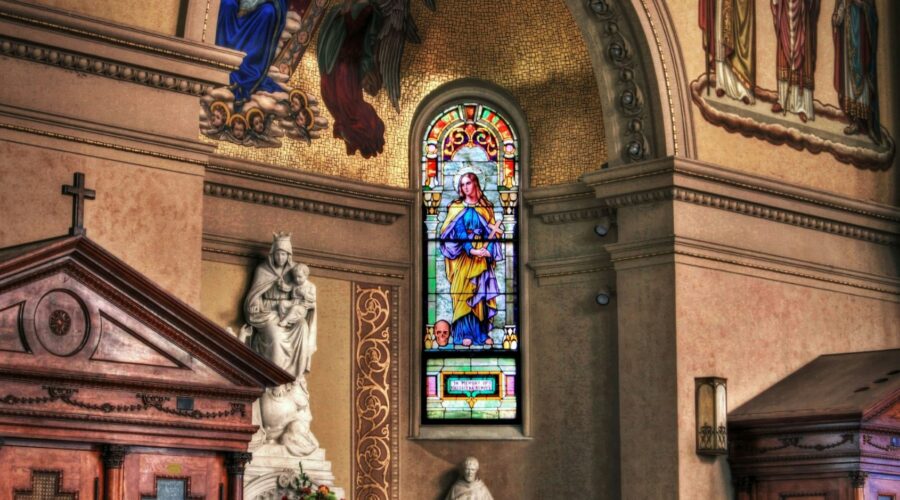
Step Inside: A Comprehensive Guide to Participating in a Church Service
Understanding the Purpose of a Church Service
A church service is a gathering of Christian believers who come together to worship God, learn more about their faith, and connect with fellow believers. It’s a time for spiritual growth, reflection, and community.
Key Elements of a Church Service
*
Worship
This usually includes singing hymns or contemporary Christian music, reading Scripture, and prayers. Worship is a way to express our love and adoration for God and to connect with his presence.
*
Teaching/Sermon
This is a message from the pastor or another speaker based on the Bible. It aims to teach the congregation about their faith and provide practical guidance for daily living.
*
Communion/Eucharist
In many churches, this involves sharing bread and wine to remember Jesus’ sacrifice and to symbolize unity within the body of Christ.
*
Offering
This is a time to give back to the church financially, recognizing that everything we have comes from God and should be used for his purposes.
*
Prayer
Throughout the service, there are often opportunities for congregational and individual prayer, seeking God’s presence, guidance, and provision.
What to Expect as a First-Timer
If you’re attending a church service for the first time, here are a few things you can expect:
*
Warm Welcome
Most churches welcome visitors with open arms and are eager to make you feel comfortable.
*
Dress Code
While there isn’t always a formal dress code, it’s generally respectful to dress modestly out of reverence for the occasion.
*
Different Styles of Worship
The style of worship varies from church to church. Some are more traditional and reverent, while others are more contemporary and energetic.
*
No Pressure
You won’t be pressured to do anything you don’t feel comfortable with. Simply observe, participate as much as you feel led, and ask questions if needed.
Tips for Making the Most of Your Experience
*
Prepare Your Heart
Take some time before the service to reflect on why you’re there and to open your heart to God’s presence.
*
Listen Intentionally
Pay attention to the message and ask yourself how you can apply it to your life.
*
Engage in Worship
Don’t be afraid to sing, pray, or worship in your own way.
*
Connect with Others
Introduce yourself to people around you and strike up a conversation after the service.
*
Follow Up
If you enjoyed the service, consider visiting the church again or reaching out to the pastor to learn more.
Additional Considerations for Participating
*
Baptism
This is a rite of passage in many churches, symbolizing the washing away of sins and the beginning of a new life in Christ.
*
Membership
As you become more involved in a church, you may consider becoming a member. This usually involves a process of growth, commitment, and service.
*
Leadership
Many churches have opportunities for members to serve in various leadership roles, using their gifts and talents to support the mission of the church.
Resources for Finding a Church
*
Online Directories
There are several websites and directories that can help you find churches in your area, such as ChurchFinder.com and GreatChurches.org.
*
Word of Mouth
Ask friends, family, or coworkers for recommendations on churches they attend and enjoy.
*
Community Events
Some churches host community events or outreach programs where you can meet members and learn more about their beliefs.
*
Churches Near You
Simply search “churches near me” on a search engine to find a list of nearby churches with contact information and websites.
Remember, attending a church service is an opportunity to draw closer to God, deepen your faith, and connect with a like-minded community. Whether you’re a seasoned Christian or just exploring your spiritual journey, church services can provide a rich and meaningful experience.
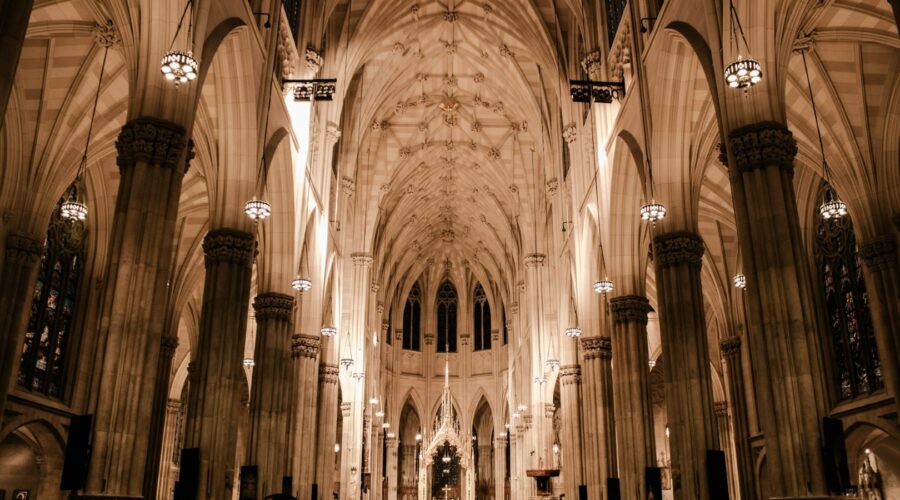
Unlock the Treasures of Faith: A Journey Through the Catechism in a Year
Introduction
Embark on an extraordinary pilgrimage to delve into the heart of Catholicism with “Catechism in a Year.” This comprehensive guide will equip you with a deeper understanding of the Church’s teachings, guiding you through the rich tapestry of our faith.
Structure of the Year-Long Journey
Weekly Lessons
Each week, embark on a specialized lesson designed to illuminate a specific aspect of the Catechism, covering Scripture, Tradition, the Creed, Sacraments, Prayer, and Morality.
Daily Readings
Complement your weekly lessons with daily readings from the Catechism, providing a consistent dose of inspiration and knowledge to deepen your understanding.
Prayer and Reflection
Incorporate reflection and prayer into your journey, fostering a personal connection to the teachings of the Church and enhancing your spiritual growth.
Benefits of Catechism in a Year
1. Enhanced Faith Literacy
Acquire a comprehensive understanding of Catholicism, enabling you to confidently articulate your beliefs and engage in meaningful conversations about faith.
2. Deeper Spirituality
Discover the profound wisdom and beauty of the Church’s teachings, fostering a deeper connection to God and a richer spiritual life.
3. Empowered Witnessing
Become a confident and compelling witness to the Gospel, sharing your faith with others based on a solid foundation of understanding.
Recommended Resources
1. Official Catechism of the Catholic Church
https://www.vatican.va/archive/ENG0015/__P2.HTM
2. Compendium of the Catechism of the Catholic Church
https://www.vatican.va/archive/ENG0015/__P3.HTM
3. Catechism Explained Podcast
https://www.catholic.com/audio/ccc
Tips for Success
1. Consistency is Key
Dedicate a small amount of time each day to participate in the readings, reflection, and prayer, ensuring consistent progress.
2. Find a Study Partner
Connect with a friend, family member, or fellow parishioner to share insights and support each other’s journey.
3. Seek Clarification
Don’t hesitate to reach out for assistance if you encounter any areas of confusion. Consulting priests, catechists, or online resources can provide valuable guidance.
Conclusion
Embracing “Catechism in a Year” is a transformative journey that will ignite your faith, deepen your understanding, and empower you as a vibrant witness to the Gospel. With consistency, dedication, and a spirit of openness, you will discover the enduring treasures of the Catechism, enriching your life and deepening your connection to God.
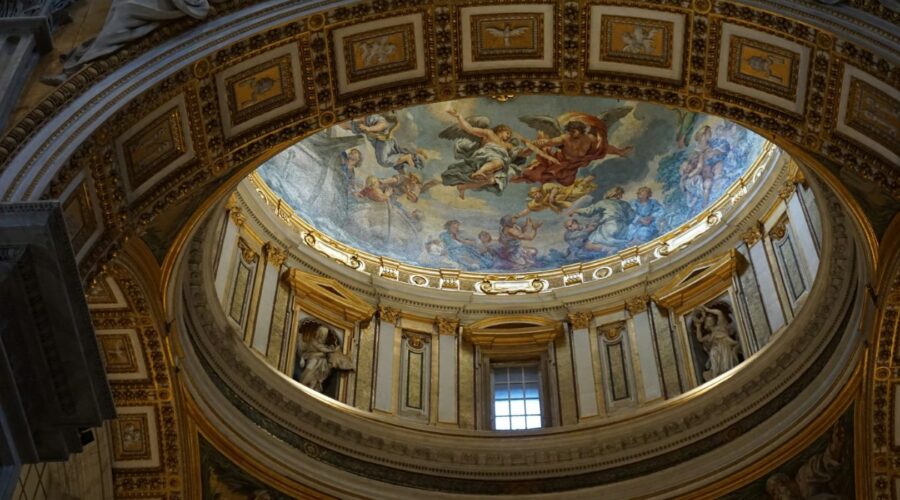
Discover the Enchanting Charm of St. John’s, Canada
A Historical and Cultural Gem
Nestled amidst the rugged beauty of Newfoundland, St. John’s is a vibrant and historic city that embodies the spirit of the Atlantic Canadian province. Steeped in centuries of maritime heritage, St. John’s is a melting pot of cultures, boasting a rich tapestry of architecture, art, and traditions.
Founded in 1497 by explorer John Cabot, St. John’s is the oldest European settlement in North America. Its strategic location as a gateway to the North Atlantic has played a pivotal role in its history, fostering trade, immigration, and cultural exchange.
Key Landmarks
- Signal Hill National Historic Site: Offering breathtaking panoramic views, this iconic hilltop is a symbol of St. John’s rich military and communications history.
- The Rooms Provincial Art Gallery: Home to a diverse collection of Newfoundland and Labrador art, The Rooms celebrates the province’s unique visual culture.
- George Street: Known as the “Mile of Music,” George Street is a lively pedestrian thoroughfare lined with charming pubs, restaurants, and live music venues.
A Foodie’s Paradise
St. John’s is a haven for culinary enthusiasts, renowned for its fresh seafood and innovative cuisine. From cozy cafes to award-winning dining establishments, the city offers a wide range of culinary experiences that showcase the region’s abundance.
Must-try dishes include:
- Fish and Chips: A classic staple in any Newfoundland city, the fish and chips here are exceptional.
- Jiggs’ Dinner: A traditional Sunday meal of salt beef, pease pudding, turnips, and carrots.
- Toutons: Fried bread served with molasses or butter.
Outdoor Adventure
Beyond its urban charms, St. John’s is surrounded by breathtaking natural beauty that beckons outdoor enthusiasts. The city is the gateway to the East Coast Trail, a world-renowned hiking path that traverses the rugged coastlines of the Avalon Peninsula.
Other popular activities include:
- Whale Watching: Join a boat tour to witness the majestic humpback whales that frequent the waters offshore.
- Sea Kayaking: Explore the coves and inlets of St. John’s harbor by kayak.
- Iceberg Viewing: During spring and early summer, icebergs from Greenland drift into the harbour, creating an awe-inspiring sight.
Practical Information
Getting There:
St. John’s International Airport (YYT) is the main gateway to the city. Several major airlines offer direct flights from various Canadian and international destinations.
Accommodation:
St. John’s offers a range of accommodation options, from budget-friendly guesthouses to luxurious hotels. Check online booking platforms or consult the St. John’s Tourism website for recommendations.
Getting Around:
The city is relatively compact and walkable. Public transportation is also an option, with buses and taxis readily available.
When to Visit:
Summer (June-September) is the most popular time to visit St. John’s, when the weather is at its best. However, each season offers its own unique charms, from the colorful fall foliage to the festive winter atmosphere.
Additional Resources:
City of St. John’s
Newfoundland and Labrador Tourism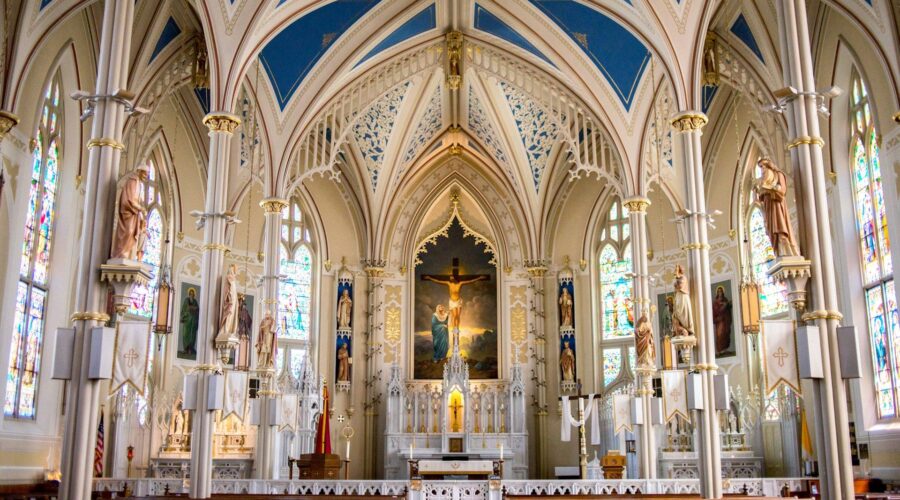
Discover a Pentecostal Church Near You: A Comprehensive Guide
Introduction
In the vibrant tapestry of Christian denominations, Pentecostal churches hold a unique place. Known for their lively worship experiences, emphasis on the Holy Spirit, and passionate pursuit of spiritual gifts, Pentecostal churches have captivated millions worldwide. If you’re seeking a Pentecostal church near you, this comprehensive guide will help you navigate the vast landscape and find the perfect fit for your spiritual journey.
Understanding Pentecostalism
Pentecostalism is a movement within Christianity that emphasizes the direct experience of the Holy Spirit, particularly evidenced by speaking in tongues, healing miracles, and prophetic utterances. This movement began in the early 20th century and has since spread to virtually every corner of the globe.
Key Beliefs and Practices
- The baptism of the Holy Spirit, manifested by speaking in tongues.
- The importance of spiritual gifts, such as prophecy, healing, and discernment.
- A strong emphasis on passionate worship and prayer.
- The belief in the imminent second coming of Christ.
Finding a Pentecostal Church Near You
With thousands of Pentecostal churches across the country, finding one near you may seem like a daunting task. Here are some helpful strategies to guide your search:
1. Search Online Directories
2. Attend Local Events
Pentecostal churches often participate in community events, such as festivals and parades. Attending these events is an excellent way to connect with members and learn more about their beliefs.
3. Ask for Referrals
If you know friends or family who attend Pentecostal churches, ask them for recommendations. Personal referrals can provide valuable insights and help you find churches that align with your values.
What to Look for in a Pentecostal Church
Once you have identified a few potential Pentecostal churches, consider the following factors when making your decision:
1. Doctrine and Biblical Teaching
Ensure that the church’s teachings align with your understanding of the Bible and Pentecostal beliefs.
2. Worship Experience
Visit the church during a worship service to experience the atmosphere and style of worship firsthand. Does it resonate with your spiritual needs?
3. Pastoral Leadership
The pastor plays a crucial role in shaping the church’s culture and spiritual direction. Meet the pastor and assess whether they are a good fit for your growth and development.
4. Community and Fellowship
Pentecostal churches emphasize community and fellowship. Look for a church with a welcoming congregation where you feel connected and supported.
Benefits of Attending a Pentecostal Church
Attending a Pentecostal church offers numerous benefits for believers:
1. Spiritual Growth
Pentecostal churches provide opportunities for spiritual growth through Bible study, prayer, and the exercise of spiritual gifts.
2. Personal Empowerment
The emphasis on the Holy Spirit and spiritual gifts empowers believers to live a life of purpose and fulfillment.
3. Community and Support
Pentecostal churches offer a supportive community where believers can connect with like-minded individuals and receive encouragement.
Conclusion
Finding a Pentecostal church near you is a journey of spiritual discovery and personal connection. By following the steps outlined in this guide, you can navigate the landscape of Pentecostal churches and find a community that meets your unique needs. Whether you’re seeking a place to deepen your faith, experience the power of the Holy Spirit, or simply connect with other believers, a Pentecostal church may be the perfect destination for your spiritual journey.
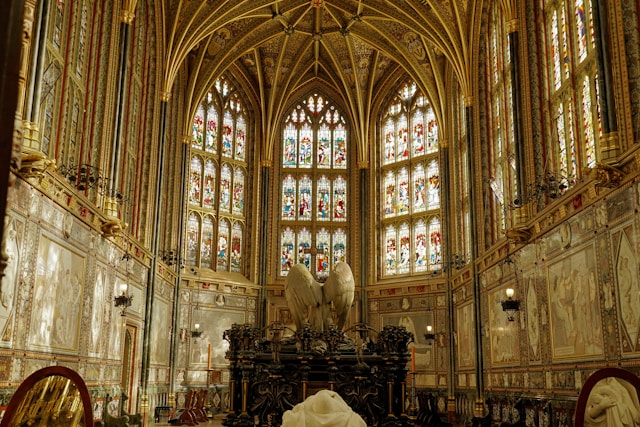
Discover the Church of Jesus Christ: A Comprehensive Guide
About the Church of Jesus Christ
The Church of Jesus Christ of Latter-day Saints, commonly known as the Mormon Church, is a Christian denomination based in Salt Lake City, Utah.
Founded in 1830 by Joseph Smith Jr., the church emphasizes the restoration of original Christian practices and beliefs, including:
- The Book of Mormon as additional scripture
- Modern-day prophets and apostles
- Temple ordinances and eternal families
Beliefs and Practices
Core Doctrines
- Godhead: Believes in a Godhead of three distinct beings: God the Father, Jesus Christ, and the Holy Ghost.
- Plan of Salvation: Teaches a pre-mortal existence, mortal probation, and post-mortal judgment.
- Atonement: Recognizes Jesus Christ as the Savior, whose atonement redeems all mankind from sin.
- Resurrection and Eternal Life: Believes in the resurrection of all people and eternal life with God.
Worship and Ordinances
- Sacrament: Weekly ordinance involving bread and water, representing the body and blood of Christ.
- Baptism: Ordinance performed by immersion for the remission of sins and membership into the church.
- Endowment: A sacred ordinance performed in temples, symbolizing purification and preparation for eternal life.
- Sealing: An eternal marriage ordinance performed in temples, joining families together.
Organization and Structure
The Church of Jesus Christ is governed by a centralized hierarchy led by the First Presidency (President, First Counselor, and Second Counselor).
The church is organized into:
- Local Congregations: Called “wards” or “branches,” led by local leaders.
- Stakes: Groups of local congregations, led by Stake Presidents.
- Missionary Program: Young men and women serve two-year missions to preach the gospel worldwide.
- General Authorities: Leaders called by revelation, including Apostles, Seventies, and Presiding Bishopric.
Community and Humanitarian Services
The Church of Jesus Christ is actively involved in humanitarian efforts and community service:
- Welfare: Provides food, clothing, and shelter to those in need.
- Disaster Relief: Mobilizes volunteers and resources to assist in times of natural disasters.
- Education: Operates Brigham Young University and other educational institutions worldwide.
- Family History: Maintains a vast database of genealogical records.
Controversies and Criticism
The Church of Jesus Christ has faced some controversies and criticism throughout its history:
- Polygamy: Early church members practiced polygamy, but the practice was discontinued in the late 19th century.
- Race and Priesthood: Until 1978, black men were not allowed to hold the priesthood or receive temple ordinances.
- Doctrinal Changes: Some doctrines and practices have changed over time, which has raised questions about the church’s authenticity.
Conclusion
The Church of Jesus Christ of Latter-day Saints is a unique and complex religious organization. With its distinctive beliefs, practices, and humanitarian efforts, the church has a significant impact on its members and the wider community.
While controversies and criticisms have arisen, the church remains a vibrant and growing faith. Its commitment to its core doctrines, strong family values, and service to others continue to inspire its members and attract interest from those seeking spiritual growth and connection.
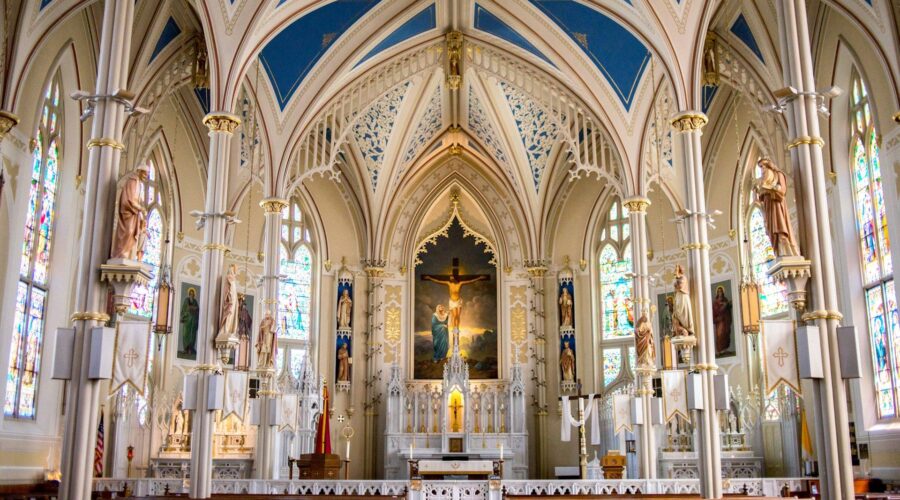
Discover Saddleback Church: A Global Evangelical Powerhouse
Introduction
Saddleback Church is one of the largest and most influential evangelical churches in the world, known for its innovative approaches to evangelism, discipleship, and social outreach.
History and Leadership
Origins
Saddleback Church was founded in 1980 by Rick Warren in Mission Viejo, California. With only 205 members at its inception, the church has experienced exponential growth over the decades.
Rick Warren
Rick Warren is the founding pastor and visionary leader of Saddleback Church. He is a best-selling author, renowned speaker, and has received numerous awards and accolades for his contributions to the evangelical community.
Theology and Practices
Doctrinal Beliefs
Saddleback Church adheres to the core tenets of evangelical Christianity, emphasizing the authority of Scripture, the deity of Jesus Christ, the need for repentance and faith, and the importance of discipleship.
Purpose-Driven Worship
Worship services at Saddleback Church are lively and engaging, with contemporary music, multimedia presentations, and relevant messages designed to inspire and encourage attendees.
Small Groups and Discipleship
Saddleback Church places a high value on small groups, where members connect for Bible study, prayer, and accountability. This emphasis on discipleship fosters spiritual growth and encourages members to live out their faith in their daily lives.
Global Outreach and Social Impact
Missions and Evangelism
Saddleback Church is committed to spreading the gospel and serving communities both locally and globally. The church has established over 600 international partnerships and supports numerous missions projects.
Social Initiatives
The church actively engages in social outreach programs, addressing issues such as poverty, homelessness, and environmental stewardship. Through its various ministries, Saddleback Church seeks to make a positive impact on the lives of people in need.
Impact and Legacy
Church Growth and Influence
Saddleback Church has become a model for other evangelical churches, attracting visitors and attendees from around the world. The church’s size, influence, and innovative practices have contributed to its prominence within the global Christian community.
The Purpose-Driven Life
Rick Warren’s book, “The Purpose-Driven Life,” has sold over 50 million copies worldwide and has been translated into more than 100 languages. This influential book has inspired countless people to discover their God-given purpose and live meaningful lives.
Partnerships and Collaborations
Saddleback Church collaborates with various organizations and institutions, including the World Economic Forum and the United Nations, to promote peace, reconciliation, and sustainable development.
Membership and Participation
How to Join
Becoming a member of Saddleback Church is a straightforward process involving attending services, completing a new member class, and participating in small groups. The church welcomes people from all backgrounds and denominations.
Volunteer Opportunities
Saddleback Church offers a wide range of volunteer opportunities, allowing members to serve in various capacities and contribute to the church’s mission. From ministry teams to community outreach programs, there are opportunities for individuals of all ages and interests.
Events and Programs
Saddleback Church hosts a variety of events and programs throughout the year, including conferences, concerts, and retreats. These events provide opportunities for members to connect, grow spiritually, and engage with the wider community.
Conclusion
Saddleback Church is a dynamic and influential evangelical church that has made a significant impact on both the Christian community and the world at large. Through its innovative approaches to worship, discipleship, and social outreach, the church continues to inspire and empower countless individuals to live purpose-driven lives and make a positive contribution to society.